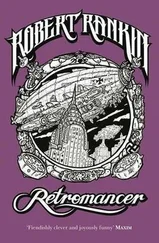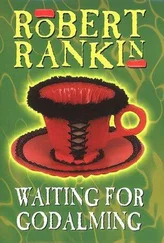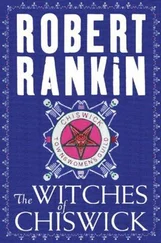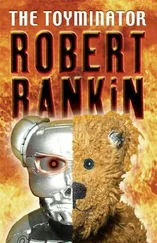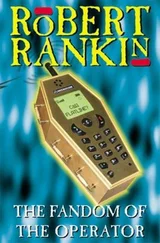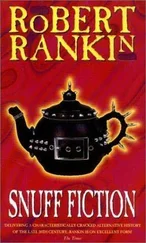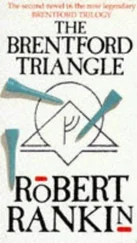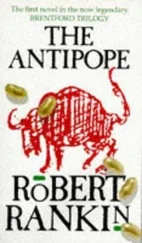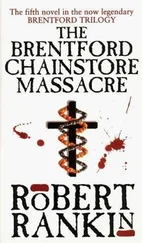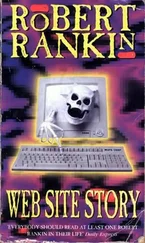Robert Rankin - The Brightonomicon
Здесь есть возможность читать онлайн «Robert Rankin - The Brightonomicon» весь текст электронной книги совершенно бесплатно (целиком полную версию без сокращений). В некоторых случаях можно слушать аудио, скачать через торрент в формате fb2 и присутствует краткое содержание. Жанр: Фантастика и фэнтези, на английском языке. Описание произведения, (предисловие) а так же отзывы посетителей доступны на портале библиотеки ЛибКат.
- Название:The Brightonomicon
- Автор:
- Жанр:
- Год:неизвестен
- ISBN:нет данных
- Рейтинг книги:4 / 5. Голосов: 1
-
Избранное:Добавить в избранное
- Отзывы:
-
Ваша оценка:
- 80
- 1
- 2
- 3
- 4
- 5
The Brightonomicon: краткое содержание, описание и аннотация
Предлагаем к чтению аннотацию, описание, краткое содержание или предисловие (зависит от того, что написал сам автор книги «The Brightonomicon»). Если вы не нашли необходимую информацию о книге — напишите в комментариях, мы постараемся отыскать её.
The Brightonomicon — читать онлайн бесплатно полную книгу (весь текст) целиком
Ниже представлен текст книги, разбитый по страницам. Система сохранения места последней прочитанной страницы, позволяет с удобством читать онлайн бесплатно книгу «The Brightonomicon», без необходимости каждый раз заново искать на чём Вы остановились. Поставьте закладку, и сможете в любой момент перейти на страницу, на которой закончили чтение.
Интервал:
Закладка:
'That doctor,' I said, with terrible recollection, 'he harvests the homeless for spare parts. We must do something about this. We must go to the police.' 'You think they might believe you?' 'Why would they not?'
Mr Rune shrugged. 'They might,' said he. 'In fact, I feel certain that they would, for it is the police who scoop up the homeless from the streets and deliver them to the hospitals. The police might, quite naturally, ask you for some form of identification, of course. I wonder what might happen to you when you fail to provide it.' 'But this is outrageous. Inhuman.'
'Indeed,' said Mr Rune, pouring for himself alone another drink. 'And it will be dealt with. All such injustices will be dealt with.' 'When?' I asked.
'In time,' said Hugo Rune. 'Everything will resolve itself in time.' 'Can I have another drink?' I asked. 'It's now time that you popped out to the offy,' said Hugo Rune. The Monstrous Mystery of the Moulsecoomb Crab
The Moulsecoomb Crab
PART I
I am sure that it must have been May when it happened. The Brighton Festival was on the go and many strange fellows were doing strange things in the town. There was a lot of 'street theatre', which seemed generally to consist of foolish people with whitely daubed faces climbing into cardboard boxes and fiddling about with fish. Things that I am told they did for Art. Now, I confess that I have never been altogether comfortable with Art. It comes in so many shapes and sizes and is more difficult to pin down than Iron Man Steve Logan, my favourite wrestler of the day. You knew where you were with the wrestling, of course. You were sitting in your armchair at four o'clock of a Saturday afternoon watching television with Kent Walton doing the commentary. But Art, well, I was never comfortable with it.
I felt this irrational desire to smite the whitely daubed types, tear up their cardboard boxes and murder their mackerel, which brings me, albeit circuitously, to the next case that Mr Rune had set himself to solve: the Monstrous Mystery of the Moulsecoomb Crab.
Now, I had never set foot in Moulsecoomb. I had mooched all around and about the rest of Brighton in the hope of stirring something that would lead to the rediscovery of my identity, but the Moulsecoomb area remained a mystery.
I do not know what it is like these days. Perhaps it has 'come up' like so many other areas have. Perhaps the houses there now sell for millions. But back then in the swinging sixties, Moulsecoomb was a NO-GO AREA. And that was in capital letters.
It all went back to Victorian times, apparently, and the transportation of criminals to Australia. With the opium and slave trades having fallen off, worthy captains had put their vessels to use in the lucrative transportation of criminals to the lands of Down Under. The scheme – organised, I understand, by an early precursor of the NHS – was that the captains were paid for the one-way journey there only. They dropped off the criminals in Australia, then took on whatever cargoes they thought would prove profitable at home, and then returned.
The cargoes they acquired in Australia – platypus pelts, which were used extensively in the manufacture of theatrical costumery of the amphibious persuasion, and koala ears, which adorned many a fashionable Kensington dowager's snuff-trumble – were profitable in their way, but it was the trip out that paid the bills. And Australia was a long way away. It took nearly a year to get there in those days, two if you took an accidental turn into the Gulf Stream and had to go via Canada. So the worthy sea captains shortened their journey times by dropping off the criminals in Brighton and returning to the port of London the pretty way, via Dublin's fair city where the girls are so pretty, with talk of favourable headwinds and excuses for their empty holds – that platypi and koalas had become extinct.
The criminals themselves, of course, knew better than to return to London and so set up a colony in the Moulsecoomb area, which was at that time all but impenetrable swamp, the haunt of the Sussex crocodile, the Hove hippopotamus, the Brighton bagpuss and any number of sundry other unlikeable beasties. And from there they engaged in piratical activities and freebooting.
The name 'Moulsecoomb' derives, of course, from the founder of the colony: the infamous pirate, brigand, plunderer and pigeon-fancier Blackjack Moulsecoomb. Of evil memory.
Black Jack's escapades remain to this very day the talk of the quayside taverns of Brighton. Wherever two grizzly salts meet together, the name of Black Jack is never far from their tattooed lips.
I must have always harboured a liking for pirates. Whether it was the cutlasses, or the flintlocks, or the Jolly Roger, or the drinking of rum, wenching of wenches, chewing of limes or the wearing of ostentatious earrings, I am unable (or perhaps unwilling) to say. But I like 'em. Do not like Art, do like pirates. It is simply a preference thing. And I am sure I would have really liked that Blackjack.
It is said that when the weather held to fair and the barometer was rising, he and his scurvy crew would set sail from their secret inlet within the swamps of Moulsecoomb, cruise around the Brighton Marina and at precisely four o'clock on a Sunday afternoon (during the mixed-bathing season) pillage the Palace Pier.
Apparently, members of the aristocracy, lords and ladies and the like, who came to promenade upon the sundecks during that period did so in the hope of being pillaged by Black Jack and his pirate crew. Especially the ladies, for Blackjack was something of a Johnny Depp.
The upshot of all this, lest the reader think that I am losing the plot, is that Black Jack put it about all over the place, but nowhere more so than in the pirate enclave that he founded, with the result that it grew and expanded into the community that it became: the den of iniquity known as Moulsecoomb, where policemen and rigfrt-thinking individuals feared to tread.
Back then, in the nineteen sixties, the barbed-wire entanglements were still up and Moulsecoomb had its own parliament and private army, the Moulsecoomb Militia, better armed and more greatly feared than any official British regiment. There were fewer pirates, of course. In fact, there was hardly one to be found, the last pillaging of the Palace Pier on record being in 1953, when Blackjack's great grandson Grey Jim (for he was getting on in years) launched one final pillage as a tribute to James Dean who had died the previous week.*
So I had never taken to walking alone around Moulsecoomb, and would certainly never have entered it at all if it had not been for Hugo Rune and his desire to visit the circus that was presently encamped upon the Palace lawns before our rooms at forty-nine Grand Parade: Count Otto Black's Circus Fantastique.
'We cannot go to that' I told Mr Rune as he and I sipped champagne in The Mound and Merkin (for such was Fangio's bar named upon this particular day). 'Count Otto is your mortal enemy, or so you told me. And you never told me that he ran a circus.' 'It comes to Brighton every year at this time,' said Rune, *James Dean, it is to be noted, did not die aged 27 and had no connection with Robert Johnson whatsoever. Although he was recently canonised and is now the patron saint of pirates. quaffing champagne and chasing a tiny spaniel around an ashtray with a cocktail stick. 'It's part of the Festival.'
'But he is the Moriarty to your Holmes – or so you told me.'
'It is unnecessary for you to add the words "or so you told me" to each sentence. You may assume, and you would be correct, that I am aware of what I have told you.'
'I suppose then that you will want me to acquire the tickets.'
'No need,' said Mr Rune. 'Fangio here has two free tickets.'
'Got them for putting up a poster,' said Fangio, indicating the gaudy item that hung amongst the auto parts behind his bar. And drawing the bowl of complimentary peanuts beyond the reach of Mr Rune. 'And I'm keeping them, too,' he continued. I recollect now that Fangio put up a respectable struggle to retain his circus tickets. I recall the silken words of Mr Hugo Rune that oozed persuasion to part with them. And the harsher words that followed when Fangio failed to comply. And I recollect also that I took to the gents' when I saw the stout stick rising.
Читать дальшеИнтервал:
Закладка:
Похожие книги на «The Brightonomicon»
Представляем Вашему вниманию похожие книги на «The Brightonomicon» списком для выбора. Мы отобрали схожую по названию и смыслу литературу в надежде предоставить читателям больше вариантов отыскать новые, интересные, ещё непрочитанные произведения.
Обсуждение, отзывы о книге «The Brightonomicon» и просто собственные мнения читателей. Оставьте ваши комментарии, напишите, что Вы думаете о произведении, его смысле или главных героях. Укажите что конкретно понравилось, а что нет, и почему Вы так считаете.
